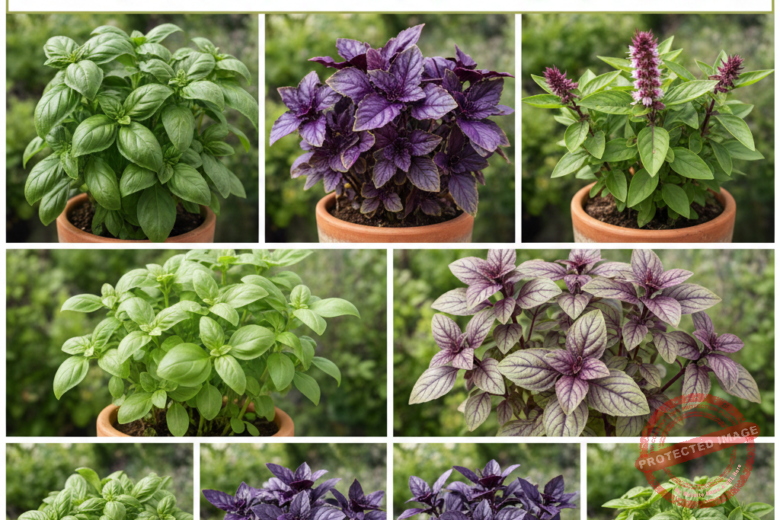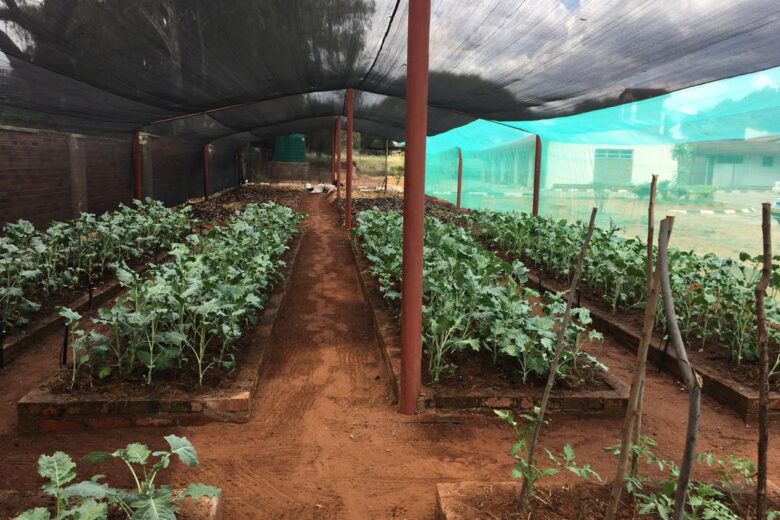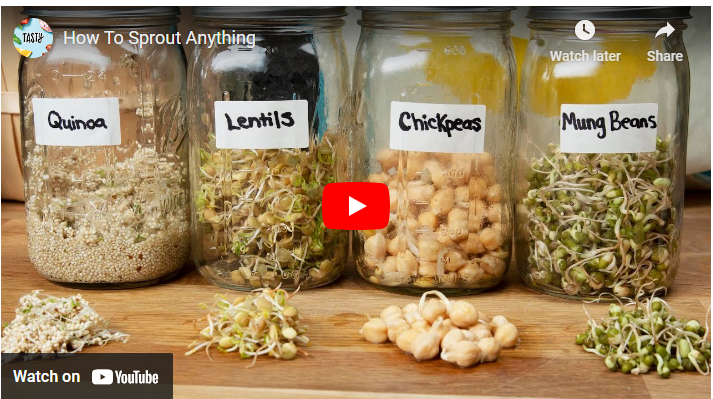Uganda, a land of lush greenery and fertile soils, beckons you to explore its bountiful agricultural opportunities.
Embark on a journey of prosperity as you discover the 15 most profitable crops to grow in this vibrant East African nation.
From the golden fields of maize to the aromatic coffee plantations, Uganda offers a rich tapestry of crops that promise lucrative returns.
Delve into the world of bananas, tea, and cassava, and witness your efforts blossom into abundant harvests.
Join us as we unveil the secrets to success in cultivating these profitable crops, and embrace the rewards of farming in Uganda’s flourishing agricultural landscape.
15 Most Profitable Crops to Grow In Uganda
Agribusiness is a thriving sector in Uganda, presenting lucrative opportunities for farmers. From open field to greenhouse cultivation, certain crops hold the potential to maximize profits and ensure success.
Discover the transformative power of these crops as we delve into the realm of agricultural entrepreneurship in Uganda.
Checkout the 15 most profitable crops to grow in Uganda below so that you can embrace the potential and reap the rewards of this prosperous industry.
- Coffee
- Tea
- Maize (corn)
- Beans
- Cassava
- Bananas
- Irish potatoes
- Sweet potatoes
- Tomatoes
- Onions
- Cabbage
- Pineapples
- Passion fruits
- Mangoes
- Avocados
#1. Coffee
Coffee farming is a lucrative venture in Uganda due to the country’s favorable climate and suitable altitude.
Attention to detail in selecting the right coffee variety, proper plantation management, regular pruning, and appropriate processing techniques are essential for maximizing yields and producing high-quality coffee beans.
#2. Tea
Tea cultivation in Uganda offers great potential for profit. The country’s highlands provide ideal conditions for growing tea.
Successful tea farming involves careful selection of tea varieties, proper soil management, regular pruning, and efficient processing to meet the stringent quality standards demanded by the market.
#3. Maize (Corn)
Maize is a staple food crop in Uganda and presents a significant income opportunity for farmers.
To achieve high yields and profitability, farmers need to focus on land preparation, selecting improved maize varieties, practicing proper crop rotation, timely weeding, effective pest and disease control, and adopting modern farming techniques.
#4. Beans
Beans are in high demand in Uganda, making it a profitable crop for farmers.
Successful bean farming requires careful selection of suitable bean varieties, proper land preparation, effective weed control, disease and pest management, and appropriate post-harvest handling to maintain quality and market value.
#5. Cassava
Cassava is a versatile and profitable crop in Uganda, used both for food consumption and industrial purposes.
Farmers should pay attention to selecting high-yielding and disease-resistant cassava varieties, proper land preparation, regular weeding, and pest and disease control.
Proper post-harvest processing, including drying and storage, ensures the crop’s market value.
#6. Bananas
Banana farming is a profitable venture in Uganda due to the high local and regional demand.
Farmers should focus on selecting disease-resistant banana varieties, proper planting techniques, regular irrigation, adequate pest and disease control, and effective weed management.
Proper post-harvest handling, including timely harvesting and packaging, ensures the bananas’ quality and marketability.
#7. Irish Potatoes
Irish potatoes are highly profitable in Uganda, particularly in high-altitude regions. Successful potato farming involves selecting suitable potato varieties, preparing well-drained soils, practicing proper spacing and planting methods, timely weeding, efficient pest and disease control, and proper storage techniques to prevent post-harvest losses.
#8. Sweet Potatoes
Sweet potatoes are a versatile and profitable crop in Uganda. Farmers should focus on selecting high-yielding and disease-resistant sweet potato varieties, preparing fertile soils, practicing appropriate spacing and planting methods, efficient weed control, and proper pest and disease management.
Proper post-harvest handling, including curing and storage, ensures the crop’s quality and market value.
#9. Tomatoes
Tomatoes are in high demand throughout Uganda, making tomato farming a profitable venture.
Successful tomato cultivation involves selecting suitable tomato varieties, practicing proper seedling production, implementing effective irrigation and fertilization practices, proper pest and disease management, and adopting modern farming techniques for improved yields and quality.
#10. Onions
Onion farming can be highly profitable in Uganda due to the consistent demand. Farmers should focus on selecting suitable onion varieties, practicing proper seedbed preparation, implementing appropriate spacing and planting techniques, efficient weed control, disease and pest management, and adopting proper harvesting and post-harvest storage practices for optimal market value.
#11. Cabbage
Cabbage farming is profitable in Uganda due to its high demand in both local and export markets.
Successful cabbage cultivation involves selecting disease-resistant varieties, proper land preparation, implementing good irrigation practices, efficient pest and disease control, and timely harvesting to ensure optimal quality and market value.
#12. Pineapples
Pineapple farming is lucrative in Uganda due to favorable climatic conditions.
Successful pineapple cultivation involves selecting suitable pineapple varieties, providing well-drained soils, implementing appropriate spacing and planting methods, regular irrigation, effective weed control, and proper pest and disease management.
Proper post-harvest handling and packaging are essential for preserving the fruit’s quality and extending its shelf life.
#13. Passion Fruits
Passion fruit farming offers great profitability in Uganda. Farmers should focus on selecting disease-resistant passion fruit varieties, practicing proper land preparation, implementing efficient trellising systems, regular irrigation, and timely pruning and harvesting.
Effective pest and disease management and proper post-harvest handling are crucial for maintaining the fruit’s quality and marketability.
#14. Mangoes
Mango farming is highly profitable in Uganda due to the country’s favorable climate for mango production.
Successful mango cultivation involves selecting suitable mango varieties, practicing proper land preparation, efficient irrigation, implementing effective pest and disease control measures, and adopting good pruning and harvesting practices to ensure high-quality fruits.
#15. Avocados
Avocado farming is a lucrative venture in Uganda due to the increasing demand for avocados in both local and international markets.
Successful avocado cultivation involves selecting suitable avocado varieties, providing well-drained soils, proper spacing and planting techniques, regular irrigation, effective weed control, and appropriate pest and disease management.
Proper harvesting and post-harvest handling techniques are crucial for maintaining the fruit’s quality and market value.
Cultivation Techniques of Profitable Crops for Small Farms in Uganda
Each crop requires specific cultivation techniques, such as proper land preparation, seed selection, planting methods, irrigation, fertilization, weed control, pest and disease management, and timely harvesting.
It is crucial for small farmers in Uganda to learn and implement these techniques to maximize crop yields and profitability.
Best Practices for Profitable Crops for Small Farms in Uganda
Some best practices for profitable crop farming in Uganda include selecting suitable crop varieties, practicing crop rotation, using organic fertilizers, employing efficient irrigation methods, implementing integrated pest management, adopting good post-harvest handling practices, and engaging in market-oriented farming to meet consumer preferences and demands.
Risk Management Strategies for Profitable Crops for Small Farms in Uganda
Small farmers in Uganda can mitigate risks by diversifying their crop selection, practicing proper land management and soil conservation techniques, obtaining crop insurance, implementing effective pest and disease control measures, maintaining good farm hygiene, monitoring weather patterns, and staying informed about market trends and prices.
Market Demand of Profitable Crops for Small Farms in Uganda
The market demand for profitable crops in Uganda varies depending on consumer preferences, export opportunities, and domestic consumption.
Small farmers should conduct market research, engage with local buyers, cooperatives, and export markets, and consider value addition to meet the demand for fresh produce, processed products, and export-quality crops.
Factors for Successful Planting of Profitable Crops for Small Farms in Uganda
Several factors contribute to successful crop planting in Uganda, including selecting suitable crop varieties, understanding soil fertility and nutrient management, practicing proper land preparation and crop spacing.
Also, ensuring adequate irrigation and water management, implementing pest and disease control measures, and adhering to recommended planting calendars.
Economic Significance of these Profitable Crops for Small Farms in Uganda
These profitable crops contribute significantly to the economic growth and livelihoods of small farms in Uganda.
They provide income generation opportunities, employment, and food security.
They contribute to the country’s export earnings, promote agribusiness development, and support the overall economic development of Uganda’s agricultural sector.
High Value Crops in Uganda
High-value crops in Uganda include coffee, tea, vanilla, cocoa, horticultural crops (such as fruits, vegetables, and flowers), spices (like ginger and turmeric), essential oils (such as eucalyptus and citronella), and medicinal plants.
These crops have a higher market value and can fetch better prices, offering greater profit potential for farmers.
Most Profitable Crops to Grow in Uganda PDF
There are PDF resources available that provide information on the most profitable crops to grow in Uganda.
These resources offer detailed insights into crop selection, cultivation techniques, market trends, and profitability analysis.
They can serve as valuable guides for farmers looking to optimize their crop choices and increase profitability.
Most Profitable Crops to Grow in Uganda 2020
The most profitable crops in Uganda can vary from year to year due to factors such as market demand, climate conditions, and policy changes.
It is important for farmers to stay updated with current market trends, consult agricultural experts, and consider factors like crop pricing, input costs, and market opportunities when making crop decisions in 2020 and beyond.
How to Become Rich Through Farming in Uganda
Becoming successful and financially secure through farming in Uganda requires strategic planning, proper crop selection, effective farm management, access to markets, and continuous learning.
Farmers can achieve financial success by adopting modern farming techniques, investing in value addition, practicing good financial management, and exploring diverse income streams within the agricultural sector.
Millionaire Farmers in Uganda
Uganda has seen the rise of several successful millionaire farmers who have achieved significant wealth through innovative farming practices, value addition, and agribusiness ventures.
These farmers serve as inspirational figures and role models, showcasing the potential for wealth creation within the agricultural sector.
Best Crop to Grow on 5 Acres
The best crop to grow on 5 acres of land in Uganda depends on various factors, including market demand, soil fertility, climate conditions, and farmer expertise.
Some profitable options for 5-acre farms in Uganda may include coffee, tea, maize, beans, bananas, tomatoes, passion fruits, or horticultural crops like vegetables or flowers.
Conducting market research and considering personal capabilities can help determine the most suitable crop choice.
Best Crops for Beginning Farmers
Beginning farmers in Uganda can start with crops that have relatively lower production costs, lower risks, and higher market demand.
Some suitable crops for beginners may include maize, beans, sweet potatoes, bananas, watermelons, or vegetables like cabbage, carrots, and onions.
These crops are relatively easier to cultivate and have established markets, providing a solid foundation for new farmers.
Most Profitable Crops for Greenhouse
Greenhouse farming offers opportunities to grow high-value crops throughout the year by providing a controlled environment for crop production.
In Uganda, profitable crops for greenhouse farming include tomatoes, peppers, cucumbers, lettuce, herbs, and strawberries.
Greenhouse cultivation allows for optimized yield, improved crop quality, and protection against adverse weather conditions, resulting in increased profitability.
Conclusion
With its fertile lands and diverse agricultural potential, Uganda offers a wealth of opportunities for farmers seeking profitability. The 15 most profitable crops, including coffee, maize, bananas, and tea, hold the promise of abundant harvests and lucrative returns. Embrace the journey of cultivating these crops and unlock the path to prosperity in Uganda’s thriving agricultural sector.



